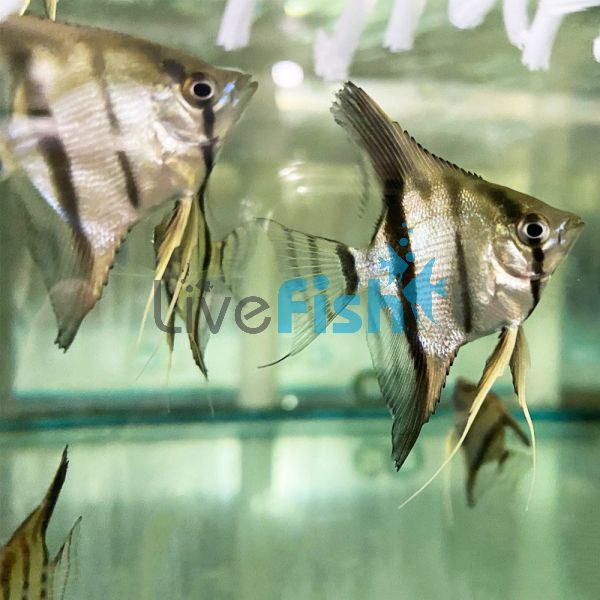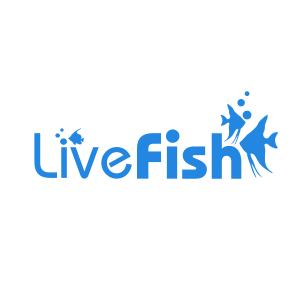Amapa Red Back Angel - Juvenile 3cm
The angelfish is one of the most recognisable aquarium fish species and is a great tropical fish species to keep. After extensive captive breeding, many colour variations have been created. However, a variation of the angel with says true to its wild origin is the Amapa Red Back Angel also known as the red shoulder angel. They are a great alternative to the highly coveted and expensive album angelfish as these Amapa Angelfish have a very similar body shape and colour as well.
- Buy 2 for $32.15 each and save 10%
- Buy 4 for $30.36 each and save 15%
- Buy 8 for $28.58 each and save 20%
Amapa Red Back Angel
The angelfish is one of the most recognisable aquarium fish species and is a great tropical fish species to keep. After extensive captive breeding, many colour variations have been created. However, a variation of the angel with says true to its wild origin is the Amapa Red Back Angel also known as the red shoulder angel. They are a great alternative to the highly coveted and expensive album angelfish as these Amapa Angelfish have a very similar body shape and colour as well.
This angelfish has an amazing olive-green body with bold jet-black stripes but the defining character of this fish is the rusty orange colour it has from the name of its head to its dorsal fin. They are a great addition to planted tanks as their light colour will contrast amazingly against the green plants and just like other angelfish variants the Amapa Red Back makes a great peaceful fish for aquariums.
Trying to find the males and females is not only the Amapa angel but angelfish, in general, is somewhat difficult when they are small however dominant males will develop a small hump on their head. 100% certainly is only achieved when a breeding pair is formed. Amapa angelfish can in fact be found in the wild and is from South America.
Tank Recommendations for your Amapa Angelfish
The Amapa angelfish is a Scalare angelfish species meaning it has the same aquarium needs as any other angelfish variety. It will reach around 15 cm long and a decent 20 cm tall when fully grown. Because of this, they would need to be kept in a tank that is at least 100 litres. Amapa angels are not a solitary species either and should be kept in pairs or shoals. However, they will need space as they can be territorial at times so having a good footprint in the aquarium is always best. A sand or gravel substrate is perfectly fine but a well-planted aquarium with lots of branching driftwood and rock will be greatly appreciated by these angelfish. This species is most active when lights are turned on during the day
Suitable Tank Buddies
The Amapa red back angelfish is fairly peaceful with aggression only ever coming out during breeding males or slight nudging like behaviour here and there. There is also a risk that they may eat very small fish fry and shrimp. With adequate space, these fish will get along with a wide range of community fish.
Usually Compatible
Cardinal tetras, gouramis, corydoras, angelfish, dwarf cichlids such as rams and large peaceful cichlids such as Uaru or Severums.
Sometime Compatible
Neon tetras, Maculatus rasboras, Semi aggressive or territorial cichlids like fire mouths, convicts cichlids and similar species.
Rarely Compatible
large aggressive species such as African cichlids, Oscars and Jaguar cichlids.
Feeding your Amapa Angelfish
Angelfish in general are a very easy species to feed that will take to a wide range of aquarium foods like pellets or flakes. They are naturally omnivore that feeds off plant matter like algae and small insects and crustaceans so a well-balanced aquarium food that has good protein and green content would be best. Feeding should occur once a day and it is best to do so when the lights are on
| Scientific Name | Pterophyllum scalare |
|---|---|
| Care Level | Easy |
| Common Names | Amapa Angel, Amapa red back angel, red shoulder angel, manacaparu angelfish, false album angelfish. |
| Diet | Omnivore |
| Fish Family | Cichlidae |
| Lifespan (years) | 15 |
| Max. Length (cm) | 15 |
| Min. Tank Volume (l) | 75 |
| Origin | South America |
| Reef Safe | Yes |
| Sociability | Peaceful |
| Venomous | No |
| Water Conditions | 24-26° C (75-79° F), pH 5.0-7.0 |




